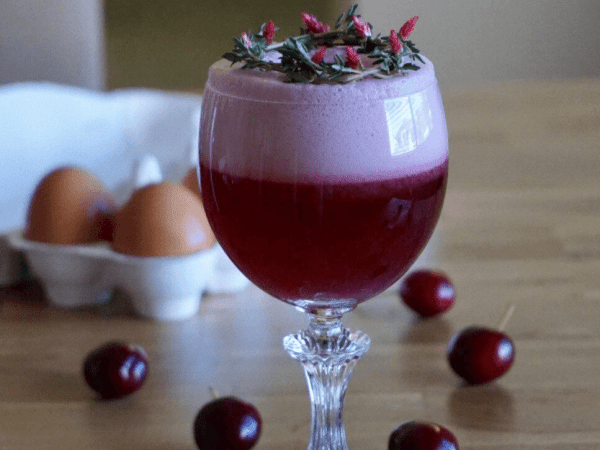
Egg White Nutrition, Recipes, Uses & More
Egg White Nutrition, Recipes, Uses & More
It’s time to whisk away all the myths, misconceptions, and assumptions. Let’s find out once and for all…
What’s in an egg white?
Are egg whites good for children? And most importantly,
Which is best? Egg whites or egg yolks?
Crack open the truth about egg whites with us!
What is an Egg White?

An egg white, also known as the egg's albumen, is the clear, gelatinous substance that surrounds the yolk within the eggshell. It primarily consists of water and proteins, notably albumin.
Egg whites contain vitamins, minerals, and protein in differing proportions when compared to egg yolks. When beaten, they turn fluffy and create a light texture in recipes like meringues, soufflés, and angel food cakes.
Egg White Nutrition
So what does an egg white consist of and how does it support your health?
- Protein - 60% of an egg's protein is in the white
- What it does: Protein is an essential macronutrient that your body and cells need to function properly. It helps to build and maintain muscle mass, aids with injury recovery, and gives the body the “fullness” feeling.
- Quantity per serve: 12.7g (20% RDI for men, 27% RDI for women)
- Riboflavin (Vitamin B2) - 67% of an egg’s riboflavin is in the white
- What it does: Also known as vitamin B2, riboflavin is necessary for cell growth, energy metabolism, red blood cell development, healthy vision, and the sound functioning of the nervous system. It also serves as an antioxidant nutrient, fighting damaging particles in the body known as free radicals.
- Quantity per serve: 0.4mg (24% RDI)
- Selenium - 28% of an egg’s selenium is in the white
- What it does: Selenium is an important antioxidant that helps prevent free radical damage to cells in the body. Selenium supports the immune system, thyroid gland function, and the maintenance of healthy hair and nails.
- Quantity per serve: 28mcg (41% RDI)
These vitamins and nutrients are not exclusively found in egg whites, but protein and riboflavin in particular are more concentrated in the white. A full list of relevant nutritional information is below.
Australian Eggs Nutrient Analysis 2018
Conducted by the National Measurement Institute (NMI), a division within the Department of Industry, Innovation and Science
| Nutrient | 2018 average qty per 100g |
| Retinol (vitamin A) | 98mcg |
| Riboflavin | 0.4mg |
| Thiamin | 0.05mg |
| Vitamin B6 | 0.02mg |
| Vitamin B12 | 0.33mcg |
| Biotin | 5.2mcg |
| Folate | 88mcg |
| Vitamin D | 7.9mcg |
| Vitamin E | 1.9mg |
| Pantothenic acid | 1.07mg |
| Potassium | 131mg |
| Magnesium | 12mg |
| Phosphorus | 171mg |
| Iron | 1.8mg |
| Selenium | 28mcg |
| Zinc | 1.0mg |
| Iodine | 47mcg |
Egg Yolks vs. Egg Whites
Do egg whites contain more protein than egg yolks? Yes.
Is it significantly more, and enough for you to consider changing your diet? Probably not. In fact, egg yolks contain almost half (41%) of the protein content found in eggs.
Likewise, if you choose to eat whites over yolks you could be missing out on essential nutrients only found in the yolk. Two egg yolks, for example, provide 82% of your daily recommended intake of vitamin D, making eggs one of the highest-quality sources of vitamin D available in food.
If your diet consists of only egg whites, you are missing out on vitamin D. Vitamin D deficiency affects anywhere between 20-40% of Australians yearly, increasing during the winter months.
Egg yolks also contain other essential nutrients, such as iron, phosphorus, folate, vitamin A, vitamin E, vitamin B12, and omega-3 fats as well as the antioxidants lutein, and zeaxanthin. While egg whites are high in riboflavin.
When looking at the nutritional value of an egg, it’s important to take a look at everything in the shell instead of individual elements. Every part of the egg contains essential nutrients to support our health and wellbeing.
Try These Delicious Egg White Recipes
What to Do With Leftover Egg Whites?

Making a delicious mayo or hollandaise sauce to pair with a dinner main? Your egg yolks are used up, so what do with those leftover egg whites?
Dessert is your go-to when it comes to egg whites. Whip up a delicious meringue, or even a soufflé. And if a little tipple is what you fancy, egg whites are a key ingredient in many cocktails too.
If you want to keep the whites for later use, they can be stored in an airtight container in the fridge for up to 4 days.
Frequently Asked Questions
Are egg whites good for you?
Egg whites and egg yolks contain different vitamins and minerals. The egg white is a great source of protein and riboflavin with some selenium as well. Egg yolks contain vitamins A, D, E, B12, lutein, zeaxanthin, and many other nutrients. Both whites and yolks provide essential nutrients for the body, with whites supplying more than half of the protein found in eggs. So yes, egg whites are good for you, but so is the yolk!
How many calories are in an egg white?
The white of a 60-gram egg contains about 17 calories.
When can a baby eat egg whites?
It is recommended to introduce well-cooked whole egg into your child’s diet in the first year of their life - around six months of age, but not before four months. Delayed introduction of egg and other food allergens has been shown to increase the chance of developing a food allergy. More information on eggs for children can be found here.
Is it okay to eat egg whites every day?
The Heart Foundation currently sets no limit for healthy people when it comes to how many eggs you can eat per day. The key is enjoying them, as part of a healthy and balanced diet. Read the complete egg consumption guidelines here.
How long do egg whites last in the fridge?
If properly stored in an airtight container, eggs can last for up to 4 days in the fridge.
You can also freeze them for up to a year using this hack.
Want to see what an egg farm looks like? Take this interactive 360 degree tour to see how eggs are produced in Australia.

 >
> 



